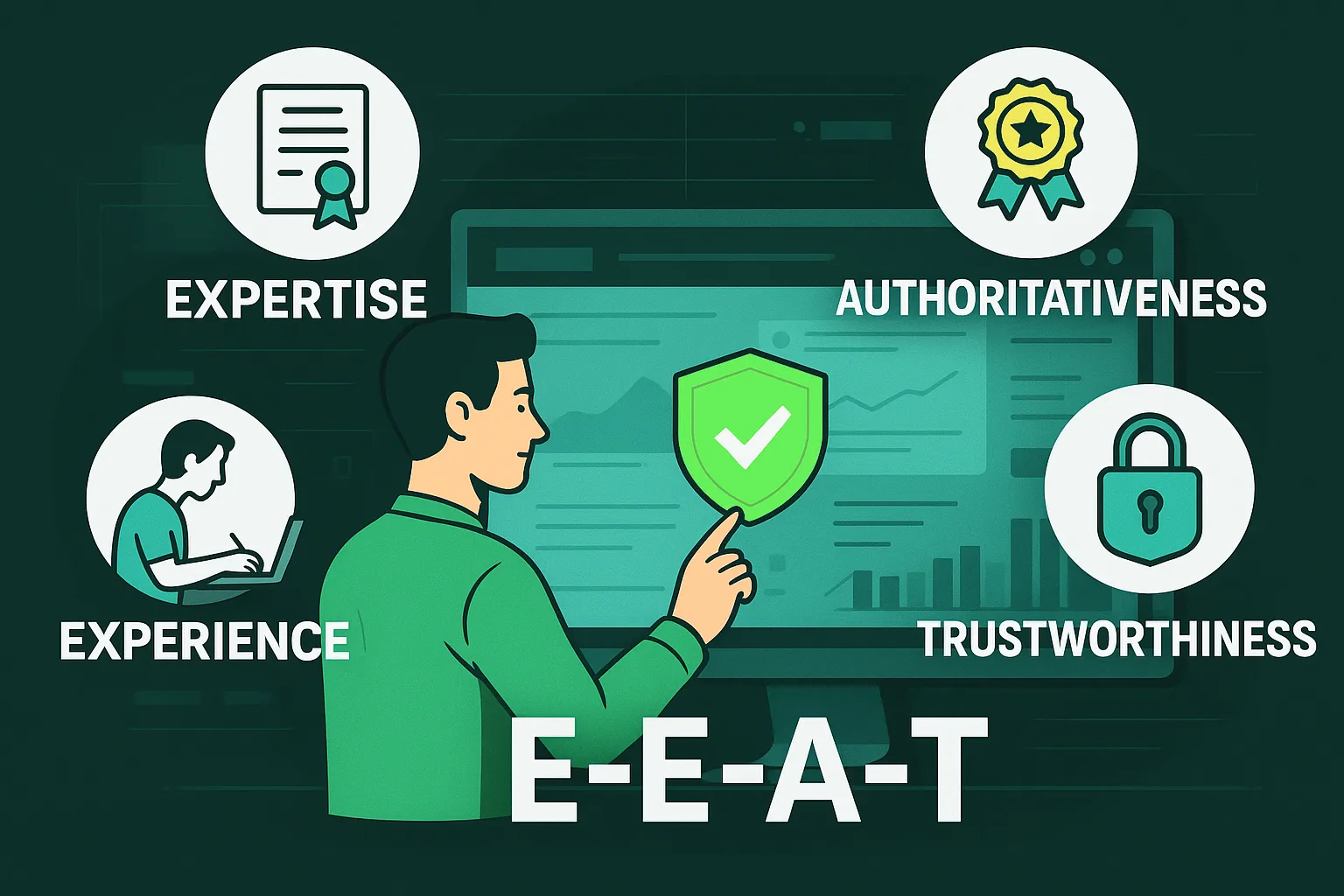For small and medium-sized businesses (SMBs), the battle for online visibility is often won (or lost) locally. If your potential customers are just around the corner, are they finding you? Local SEO isn’t just a good idea—it’s the engine that can fill your business with customers from your community. But the landscape is changing. With the rise of generative AI in search (like Google SGE – Search Generative Experience), strategies need to be smarter and more adaptable than ever.
This post is your ultimate guide to the most effective local SEO techniques today and how to prepare for the immediate future of AI-powered search.
Why Local SEO is Your SMB’s Secret Superpower
Before diving into techniques, let’s remember why this is so vital:
- Immediate Purchase Intent: Local searches (“plumber near me,” “best coffee shop in [your city]”) usually have high conversion intent.
- Focused Competition: You compete with businesses in your geographic area, not global giants (in most cases).
- Visibility in the “Map Pack”: Appearing in Google’s coveted “Local Pack” (the top 3 businesses shown with a map) can skyrocket your clicks and visits.
- Trust and Relevance: Users trust well-ranked local businesses more.
- Physical and Online Traffic: Boost both foot traffic to your store and visits to your website.
Local SEO Fundamentals That Are Still Pure Gold (And AI Will Value Them Even More)
Even with AI, strong foundations are irreplaceable. These elements are crucial and will remain so:
- Impeccable and Thoroughly Optimized Google Business Profile (GBP):
- Your Local Holy Grail: Your GBP profile is your most important digital storefront for local search.
- Consistent NAP Information: Name, Address, Phone. It must be EXACTLY the same across your GBP, website, and all other online mentions.
- Accurate Categories: Choose the primary and secondary categories that best describe your business. Be specific!
- Optimized Business Description: Include local keywords and clearly describe what you do and what makes you unique.
- Relevant Attributes: Use all applicable attributes (accessibility, payment methods, specific services like “home delivery,” “online booking,” etc.). AI will use these to answer specific questions.
- Updated Hours: Crucial, especially for holidays or special events.
- Services and Products: Detail your services and products within GBP. This helps AI deeply understand your offerings.
- Localized On-Page Optimization on Your Website:
- Local Keywords: Research and use keywords that include your city, neighborhood, or region (e.g., “mobile repair in [your neighborhood],” “yoga classes [your city]”).
- Location-Specific Content: If you have multiple branches, create unique landing pages for each with content relevant to that area.
- Optimized Meta Tags: Titles and meta descriptions that include your main service and location.
- Local Structured Data (Schema.org): Implement LocalBusiness, PostalAddress, GeoCoordinates, openingHours markup, etc. This is GOLD for AI to understand and trust your info. With AI, structured data becomes even more critical for precise interpretation.
- Embedded Google Map: On your contact and/or location pages.
- Local Testimonials and Case Studies: Show social proof of your good work in the community.
- Proactive and Strategic Review Management:
- The Social Currency of Local SEO: Reviews are a huge ranking factor and a vital source of data for generative AI.
- Encourage Reviews (Ethically): Ask your satisfied customers to leave a review. Make the process easy.
- Respond to ALL Reviews: Both positive and negative. Show that you care and manage feedback. AI can analyze sentiment and how you respond.
- Keywords in Reviews (Organic): Customers often use keywords in their reviews. This is valuable.
- Consistent and Quality Local Citations:
- What Are They?: Mentions of your NAP in online directories, industry websites, chambers of commerce, etc.
- Absolute Consistency: The key is that the information is identical everywhere. Inconsistencies confuse search engines and AI.
- Quality Over Quantity (Though Quantity Helps): Prioritize relevant and authoritative directories for your niche and locality.
- Audit and Cleanup: Review and fix incorrect or duplicate citations.
- Relevant Local Backlinks:
- Building Local Authority: Links from other local websites (city newspapers, community blogs, local business associations, complementary businesses) are very valuable.
- Local Sponsorships and Events: Participating in the community can generate links and mentions.
Advanced Techniques and Preparing for the Future with AI (Google SGE and Beyond):
Here’s where the game gets even more interesting. Generative AI in search (like SGE) won’t just show links but will generate conversational answers and summaries. How do you get featured there?
- Hyperlocal and Experience-Based Content (E-E-A-T Amplified):
- Become the Undisputed Local Authority: Create content that shows deep knowledge of your area and its residents’ needs. Local guides, “best X in [your city],” specific advice for your community.
- Show First-Hand Experience: Photos and videos of your team working, your facilities, and local events you participate in. AI looks for authenticity.
- Detailed “About Us” and Team Profiles: Humanize your brand and highlight your professionals’ expertise. AI needs to understand who is behind the information.
- Optimization for Conversational Questions (Voice Search and AI Chatbots):
- Think “How People Speak”: Optimize for full questions and natural language, not just loose keywords. (e.g., “What is the best Italian restaurant in [area] with outdoor seating and vegetarian options?”)
- Robust FAQ Sections: Create detailed FAQs on your website and your GBP profile (using the Q&A feature). These are direct sources for AI.
- Content That Answers the “Why” and “How”: Not just the “What” and “Where.”
- Exponential Importance of Structured Data and Entities:
- Feed AI With Precision: As mentioned before, Schema.org is your best friend. The more structured and semantically rich your information is, the better AI will understand and use it to generate precise answers.
- Clearly Define Your Entity: Make sure Google (and other AIs) understand your business as a unique and authoritative entity connected to other relevant entities (locations, people, services). This is built with consistent data, mentions, and linking.
- The Power of Localized Visual Content:
- Geotagged and Optimized Photos and Videos: Upload high-quality photos of your business (interior, exterior, products, team, completed jobs) to your GBP and website. Geotagging helps. Optimize file names and alt text with local keywords.
- Google Street View / Virtual Tours: They offer transparency and excellent user experience, valued by Google and potentially AI.
- Local Short Videos: Testimonials from local customers, product/service demos in recognizable locations in your area.
- Continuous Adaptability and Experimentation:
- SGE and AI Search Are Evolving: What we know today is just the beginning. Stay informed about changes and don’t hesitate to try new tactics.
- Monitor Your Results (and AI’s): Watch how AI-generated answers appear for searches relevant to your business. Are you showing up? Are your competitors? What sources does AI cite?
- Focus on User Experience (UX): A fast, easy-to-navigate website that offers real value will remain key. AI ultimately seeks to satisfy the user.
How Will Google SGE (Search Generative Experience) Specifically Impact Your Local SEO?
- Direct Answers in the “AI Snapshot”: SGE will often provide a summarized, conversational answer at the top of the results. Your goal is for your business info to be part of that summary or cited as a source.
- Fewer Clicks to Individual Websites (Potentially): If AI answers the question satisfactorily, the user might not need to click traditional links. This makes being the AI’s source even more important.
- Emphasis on Reliability and Authority: AI will be trained to prioritize trustworthy sources with demonstrated authority.
- New Presentation Formats: We’ll see SGE integrate maps, reviews, images, and other local elements within its generative answers.
Are You Ready for This New Challenge? We’ve Got You Covered.
Local SEO has always been a dynamic field, but the arrival of generative AI in search represents a turning point. It’s no longer just about appearing on a list; it’s about being the trusted knowledge source that powers the answers of the future.
At Convirtiendo, we’re at the forefront of these changes. We understand the complexities of traditional local SEO and are actively researching and applying best practices for the emerging Generative Engine Optimization (GEO) focused on local businesses.
We can help you:
- Conduct a thorough audit of your current local SEO presence.
- Maximize your Google Business Profile and local citations.
- Develop a hyperlocal, E-E-A-T rich content strategy.
- Implement advanced structured data so AI perfectly understands your business.
- Prepare your business to be a featured source in AI answers like Google SGE.
- Monitor AI’s impact on your local visibility and proactively adjust strategy.
Don’t get left behind in the evolution of search. Secure the local future of your SMB.
Effective local SEO, especially in the AI era, requires a comprehensive strategy, attention to detail, and constant adaptation. If you want your business not just to survive but to thrive and be the reference in your community, it’s time to act.
Discover how we can transform your local visibility. Request a free consultation with our Local SEO and AI experts.
The future of local search is here, and we want to help you conquer it!







